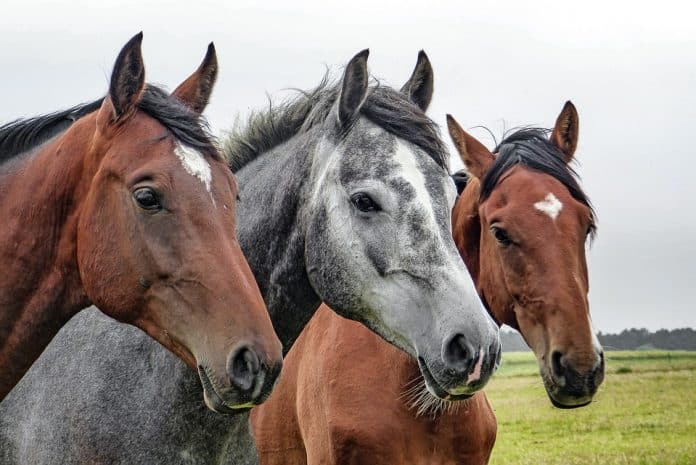
OCEAN COUNTY – Two county horses are among five new cases of Eastern Equine Encephalitis in the state according to the New Jersey Dept. of Agriculture.
Ten cases of the virus have been diagnosed this year and the last five were diagnosed within the last two weeks.
The latest cases involve a 4-year old gelding and a gelding of unknown age in Ocean County, an 18-year-old gelding horse in Morris County, a 4-month old gelding in Salem County, and a 1-year-old filly in Atlantic County.
None of these horses were vaccinated for EEE and had to be euthanized. The 10 cases in the state include nine horses and one alpaca.
Three other Ocean County horses, including a 12-year-old mare, and one horse in Monmouth County have also tested positive for EEE and were each euthanized over the summer.
NJ Agriculture Secretary Douglas Fisher said, “as more cases of Eastern Equine Encephalitis are reported, we strongly encourage horse owners to check their records to verify that their animals are protected from this disease, or to know if vaccination is needed. Animals that have been vaccinated are much less likely to contract deadly diseases such as Eastern Equine Encephalitis. It is the most effective strategy and equine vaccines are available commercially.
The virus has been described as causing inflammation of the brain tissue and has a significantly higher risk of death in horses and camelids than West Nile Virus infection.
West Nile Virus is a viral disease that affects horses’ and camelids’ neurological system. The disease is transmitted by a mosquito bite.
EEE cycles between birds and mosquitoes with horses, camelids and humans being incidental hosts.
Virus infections in horses and alpacas are not a significant risk factor for humans because horses and camelids (like humans) are considered “dead-end” hosts for the virus.
Owners of horses and alpacas are advised to contact their veterinarians if their animals are not already up-to-date on their vaccinations against both EEE and WNV.
For information about EEE, visit the NJ Dept. of Agriculture at: nj.gov/agriculture/divisions/ah/diseases/diseaseworksheets.html
EEE and West Nile virus, like other viral diseases affecting horses’ neurological system, must be reported within 48 hours of diagnosis to the state veterinarian at 609-671-6400.
The New Jersey Animal Health Diagnostic Laboratory is available to assist with EEE and WNV testing and can be reached at 609-406-6999 or via email – jerseyvetlab@ag.state.nj.us.






